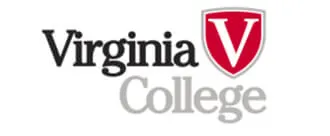Are you interested in advancing into administrative or management positions within the criminal justice field? If so, you could receive the education you need in Virginia College's Master of Science in Criminal Justice program. Read on for more information about this online master's degree program.
<h2 id="section---FrequentlyAskedQuestions">Frequently Asked Questions</h2>
<h3 id="section---WhatKindOfProgramIsIt"> What Kind of Program Is It?</h3>
<p>Virginia College's Master of Science in Criminal Justice program provides you with the opportunity to study criminal justice from a management perspective. The curriculum addresses criminal justice policy, statistics, research methods, leadership techniques, and criminology theories. In addition, seminars are given in law enforcement, juvenile justice, deviant behavior, and corrections. You will also be required to complete an approved research paper on a criminal justice topic prior to graduation. The Master of Science in Criminal Justice program is currently offered as an online program.
</p>
<h3 id="section---WhatAreThePrerequisites">What Are the Prerequisites?</h3>
<p>Before enrolling in the Master of Science in Criminal Justice program at Virginia College, you should already hold a position in the criminal justice field. You might have taken courses designed to develop management, communication, and organizational skills, though this is not required. Applicants to Virginia College programs should have a high school diploma or GED.
</p>
<h3 id="section---WhatAreTheCourseRequirements">What Are the Course Requirements?</h3>
<p>Once enrolled in Virginia College's Master of Science in Criminal Justice program, you must complete 56 quarter credit hours to earn this graduate degree. This total consists of 48 credits in the area of concentration and eight credits in electives courses. In addition, you must complete five examinations covering material addressed in the curriculum.
</p>
<p><u>Concentration Courses</u>
</p>
<p />
<table border="1"><tr><td>CRJ 5000</td><td> Issues in Criminal Justice</td></tr>
<tr><td>CRJ 5010</td><td> Seminar in Deviant Behavior</td></tr>
<tr><td>CRJ 5200</td><td> Criminal Justice Policy</td></tr>
<tr><td>CRJ 5300</td><td> Criminal Justice Leadership</td></tr>
<tr><td>CRJ 5400</td><td> Research Methods</td></tr>
<tr><td>CRJ 5450</td><td> Seminar in Corrections</td></tr>
<tr><td>CRJ 5550</td><td> Law and Social Processes</td></tr>
<tr><td>CRJ 5700</td><td> Seminar in Law Enforcement</td></tr>
<tr><td>CRJ 5900</td><td> Seminar in Juvenile Justice</td></tr>
<tr><td>CRJ 6000</td><td> Criminal Justice Statistics</td></tr>
<tr><td>CRJ 6010</td><td> Directed Research</td></tr>
</table><h3 id="section---WhatCouldIDoAfterIGraduate"> What Could I Do After I Graduate?</h3>
<h4 id="section---CareerOpportunities">Career Opportunities</h4>
<p>Upon graduating from Virginia College's Master of Science in Criminal Justice program, you could seek management or leadership roles in law enforcement agencies, police departments, courts, prisons, or governmental agencies. You could have the opportunity to apply criminal justice theories, leadership techniques, and research methods learned in the program to your future position. Possible job positions include:
</p>
<ul><li>Police detective
</li><li>Warden
</li><li>Court administrator
</li><li>Corrections facility manager
</li></ul><p><i>Advanced degrees may not be offered at Virginia College, and credits may not be transferable.</i></p>


.svg)


